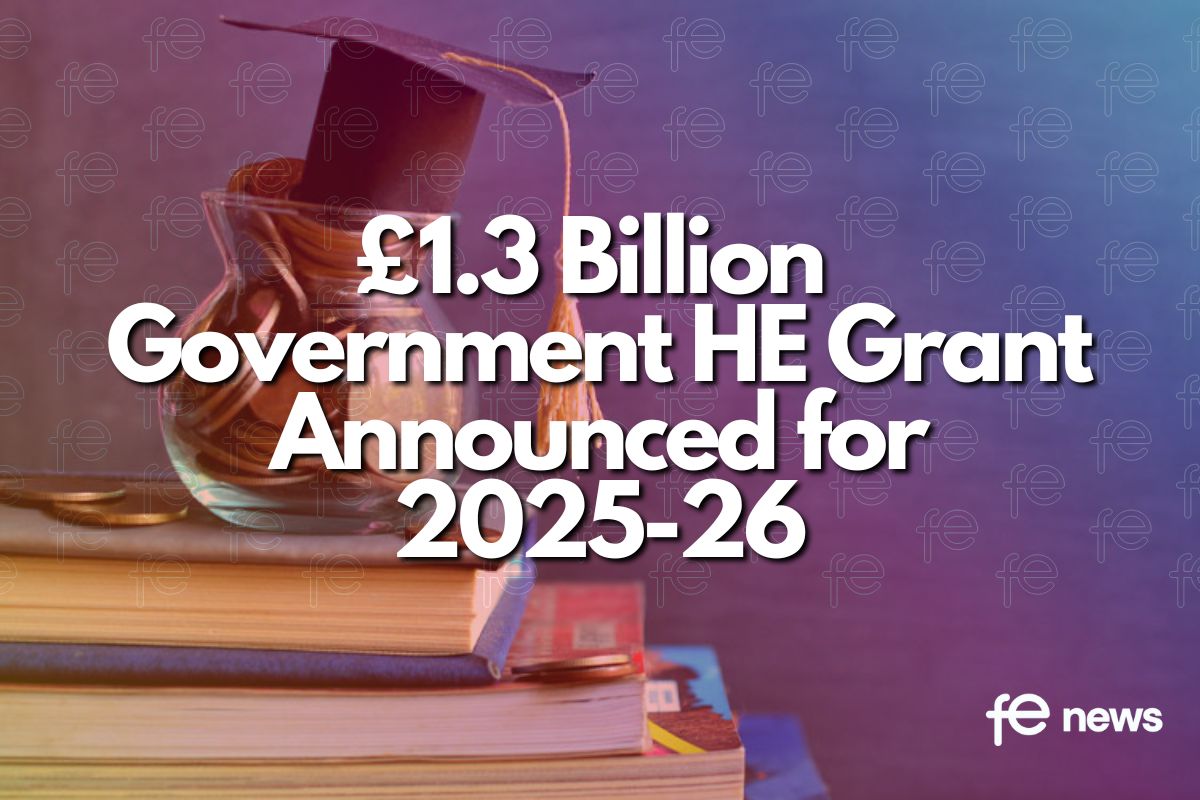Staff at 58 UK universities are on strike for three consecutive days in December

@UCU says that action will escalate in new year if employers continue to ignore staff demands
Three consecutive days of strike action will hit 58 universities starting today (Wednesday) after university bosses and their representatives refused to withdraw pension cuts or address falling pay and worsening working conditions.
After notifying vice chancellors that staff would take strike action unless they saw movement, UCU continued to meet with employer representatives Universities UK (UUK) over pension cuts, but UUK refused to reverse them.
On pay and working conditions, meanwhile, employers, represented by University and Colleges Employers Association (UCEA) still won’t meet without preconditions, and refuse to engage in agreeing action plans that would address widespread casualisation, excessive workloads and pay inequalities. UCEA has also refused to move on another below inflation pay offer for staff.
Last month UCU members at 58 institutions backed strike action in two separate ballots, one over pension cuts and one over pay & working conditions].
Research by the National Union of Students shows 73% of students support university staff taking strike action. 42 branches that just failed to meet the Conservative anti trade union threshold of 50% are being reballoted to join escalating action next year.
This week, UCU exposed how UUK had misled staff and vice chancellors about the true scale of the cuts they were pushing through. UUK had repeatedly said that its cuts to the Universities Superannuation Scheme (USS) pension would lead to staff pensions being cut by 10% to 18%. This was a claim communicated by UUK to university senior managers, and in turn university staff, in attempts to persuade them not to take action. However, the USS trustee’s own modelling shows that a typical member will see a 36% pension cut.
Staff pay has fallen by 20% after twelve years of below inflation pay offers whilst almost 90,000 academic and academic-related staff are employed on insecure contracts.
The gender pay gap in UK universities sits at 15%, whilst the disability pay gap is 9% and the race pay gap is 17%, staff are also experiencing a crisis of work-related stress with over half showing probable signs of depression.
To resolve the pension dispute UCU is demanding employers revoke their pensions cuts. To resolve the pay & working conditions dispute UCU is demanding a £2.5k pay increase for all staff, as well as action to tackle unmanageable workloads, pay inequality and insecure contracts that blight the sector.
University strikes reveal uncertainty over who owns online lectures
As universities gear up for a new round of strikes, they may wish to reuse online teaching materials recorded during the pandemic to limit the impact on students.
But a new report, “Who owns online lecture recordings?” from the Higher Education Policy Institute reveals confusion over who owns such recorded material or has the right to disseminate it. It may be the lecturers who prepared and delivered the lectures or the universities that employ them.

Christopher Gabbitas, Creative Commercial Solicitor at Keystone Law, said:
“It goes without saying that whenever a musical composition or literary work is reproduced, broadcast or performed, a royalty is due to the copyright-holders in both the underlying composition and the sound recording.
“What is less clear at present is how recorded lectures or presentations ought to be treated. Educational establishments will fall back on the assertion that any content produced by lecturers falls under the “work made for hire” concept and, as such, all IP would reside in the employers ownership under the terms of their employment contract.
“However, by viewing lectures as “content creation” or “thought leadership”, there is an argument that there is a fundamental creative element to each filmed lecture which goes beyond the usual provision of education.
“This may put the lecturer in the position of being a de facto “producer” of any recordings made (whether audio or visual) and consequently giving rise to copyright ownership, moral rights and a claim against the value being derived by the university from any re-use of a recording.”

Dr Alexis Brown, Director of Policy and Advocacy at HEPI and author of the report, said:
“Universities should think twice before considering reusing old lecture recordings to reduce the impact of the latest wave of strikes.
Depending on what was agreed when the lectures were first recorded and their institutional IP policy, it may not be legal for them to do so.”
Sector response to the strikes

Nicola Dandridge, chief executive of the Office for Students (OfS), said:
“We are extremely concerned about the potential impact of these strikes on students. Students have endured an exceptionally difficult time. It cannot be right that they face further disruption, and we would urge the employers and trade unions to work quickly so that any industrial dispute does not materially affect students.
“Last month the OfS published a briefing note setting out that universities must do all they can to mitigate the impact of the strikes and ensure that students continue to receive a quality higher education experience. We have also written to universities affected reminding them that our registration conditions continue to apply through any industrial action.
“Universities are subject to consumer protection law, and they should consider how they will make up for any disruption caused by industrial action. This might include rescheduling any teaching which is missed, delivering course topics in a different way or considering whether partial refunds of tuition fees are appropriate. Students should not be disadvantaged academically because of any disruption.”

Commenting on today’s strike action, UCU general secretary Jo Grady said:
‘If university managers doubted the determination of staff to change the higher education sector for the better, the numbers of staff on strike today prove they are very sadly mistaken.
‘Thousands of dedicated university staff and students are on picket lines, attending demos and marching to demand fair pay, decent pensions and improved working conditions.
‘The level of action seen today is just the beginning and university managers now need to wake up and address the very modest demands of staff. Otherwise, the potential for more widespread and escalating industrial action in the new year becomes very real.’
‘It is deeply regrettable that staff have been forced into taking industrial action again, but sadly university bosses have shown little interest in negotiating in good faith and addressing the serious concerns of staff over falling pay, massive pension cuts, equality pay gaps and the rampant use of insecure contracts.
‘The truth is that staff are asking for the bare minimum in a sector awash with money. But sadly, the only time vice chancellors seem to listen is when staff take action, and those leading our universities should not underestimate their determination to change this sector for the better.
‘We are grateful to all the students who are supporting staff taking industrial action because they understand that staff working conditions are student learning conditions. Vice-chancellors now need to concentrate on asking themselves why strikes have become an annual occurrence and seek to resolve this dispute in order to avoid more needless disruption to learning. If they continue to ignore the modest demands of staff then we will be forced to take further industrial action in the new year, which even more branches will join.’
Huge numbers of staff and students on campus picket lines up and down the country
University staff on the ground have reported huge numbers of staff and supportive students joining picket lines.
Around 50,000 staff at 58 universities across the UK have a mandate to take industrial action over pensions, pay and working conditions.
Student unions across the UK, such as Bristol, Durham, Goldsmiths, Liverpool, Leicester and Queen’s University Belfast, have come out to back the action. A National Union of Student’s survey shows 73% of students support UCU.
To resolve the pension dispute UCU is demanding employers revoke their pensions cuts.
To resolve the pay & working conditions dispute UCU is demanding an end to insecure contracts which are currently used to employ one third of all academic staff (75,000).
The union is also demanding £2.5k pay increase for all staff, as well as action to tackle unmanageable workloads and equality pay gaps.
33 institutions will see strikes over both pay and pensions:
- Aston University
- Birkbeck, UoL
- Durham University
- Goldsmiths, UoL
- Heriot-Watt University
- Keele University
- King’s College London
- London School of Economics
- London School of Hygiene and Tropical Medicine
- Loughborough University
- Open University
- Royal Holloway, UoL
- SOAS, UoL
- The University of Birmingham
- The University of Dundee
- The University of Kent
- The University of Leeds
- The University of Nottingham
- The University of Sheffield
- The University of Stirling
- University of Bradford
- University of Bristol
- University of Cambridge
- University of Edinburgh
- University of Essex
- University of Glasgow
- University of Lancaster
- University of Liverpool
- University of St Andrews
- University of Sussex
- University of York
- Queens University Belfast
- University of Ulster
21 will see strikes over pay only:
- Courtauld Institute of Art
- Edinburgh Napier University
- Glasgow School of Art
- Greenwich University
- Kingston University
- Liverpool Hope University
- Manchester Metropolitan University
- Queen Margaret University
- Roehampton University
- Royal College of Art
- Royal Northern College of Music
- Sheffield Hallam University
- The University of Manchester
- The University of Northampton
- The University of Salford
- University of the Arts London
- University College London
- University of Brighton
- University of Central Lancashire
- University of Chester
- University of Leicester
Four will see strikes over pensions only:
- Institute of Development Studies
- Imperial College London
- University of Bath
- University of Reading
In the pension ballot, 76% of UCU members who voted backed strike action and 88% voted in favour of action short of strike. In the pay & working conditions ballot more than seven in 10 members who voted (70.1%) backed strike action with 85% (84.9%) voting for action short of strike.
The overall turnout on the pension ballot was 53% and on pay & conditions was 51%. The ballot was disaggregated and 42 branches that just failed to meet the Conservative anti trade union threshold of 50% are being reballoted to join escalating action next year.
Universities to be hit with three days of strikes in December
16th Nov 2021: Universities UK (@UniversitiesUK) response on behalf of USS employers to @UCU announcement of three days of industrial action in December
A Universities UK spokesperson, on behalf of USS employers, said:
“We regret that the UCU is proceeding with plans for industrial action despite the fact that fewer than 10% of eligible pension scheme members voted yes to strike action. Strike action will not address the urgent need for reform to keep the scheme affordable.
“Universities will put in place measures to minimise the impact on students, other staff and the wider university community and will ensure that students can continue to learn and receive support.
“We have repeatedly stated willingness to consult employers on any viable, affordable and implementable alternative proposal from the UCU and we remain fully committed to continuing talks to develop a joint approach to the future of the pension scheme.”
58 universities will be hit with three days of strike action from Wednesday 1 December to Friday 3 December, the University and College Union (UCU) announced today (Tuesday).
The full strike dates are:
- Wednesday 1 December
- Thursday 2 December
- Friday 3 December
Earlier this month UCU members backed strike action in two separate ballots, one over pension cuts and one over pay & working conditions.
In the pension ballot, 76% of UCU members who voted backed strike action and 88% voted in favour of action short of strike. In the pay & working conditions ballot more than seven in 10 members who voted (70.1%) backed strike action with 85% (84.9%) voting for action short of strike. The National Union of Students (NUS) is backing staff who are taking industrial action.
The overall turnout on the pension ballot was 53% and on pay & conditions it was 51%. Ballots were disaggregated and 58 branches secured a mandate for strike action. UCU called on university bosses to urgently start negotiating to avoid disruption across UK campuses before Christmas. The disputes are over cuts of 35% to guaranteed pensions, pay cuts, casualisation, equality pay gaps and unsafe workloads.
Last week UCU wrote to employer representatives, Universities UK and the Universities and Colleges Employers Association, setting out how university bosses could avoid strike action before Christmas. The union is asking for pension cuts to be revoked; and for employers to improve their pay offer and commit to meaningful agreements and action on casualisation, workload, and equality pay gaps. But employers are currently refusing to revoke pension cuts or to even acknowledge issues like casualisation.
Staff pay has fallen by 20% after twelve years of below inflation pay offers; one third of academic staff are on insecure contracts; the gender pay gap sits at 15% and the most recent Higher Education Statistics Agency figures reveal that, of 22,810 professors in the UK, under a third (27%) were women and only 155 (1%) were Black; staff are also experiencing a crisis of work-related stress with over half showing probable signs of depression.
As well as the three day walkout, staff at 64 universities have a mandate to take action short of strike [NOTE 2]. This will also begin on Wednesday 1 December and will include strictly working to contract and refusing any additional duties. This is set to go on indefinitely for the five months staff have a mandate to take industrial action for.
UCU also intends to reballot a number of branches that missed the 50% turnout threshold imposed by Tory anti-trade union laws. The union said the three day strike will just be the start of sustained disruption for the sector if employers fail to negotiate.
The union intends to escalate its disputes next term. If employers do not make improved offers, further industrial action is likely to continue into the spring, at which point branches that gain a mandate in their reballots will be able to join the action.
UCU general secretary Jo Grady said:
‘Strikes over three consecutive days are set to hit university campuses next month unless employers get round the table and take staff concerns over pension cuts, pay and working conditions seriously.
‘UCU has repeatedly asked employers to meet with us to try to resolve these disputes. But while we set out pragmatic solutions that could halt widespread disruption to UK campuses, university bosses refuse to revoke unnecessary, swingeing pension cuts or even to negotiate on issues like casualisation and the unbearably high workloads that blight higher education.
‘A resolution to this dispute is simple. But if employers remain intent on slashing pensions and exploiting staff who have kept this sector afloat during a pandemic then campuses will face strike action before Christmas, which will escalate into spring with reballots and further industrial action.’
A recent report by the Office for Students shows total remuneration for vice chancellor’s averages £269k.
Exclusive research undertaken by the National Union of Students in their monthly student opinion tracker survey has revealed overwhelming levels of support for University and College Union strike action, after UCU members balloted to strike over pay and pensions issues earlier this month.
73% of students said they supported the University staff taking part in this campaign and strike action, whilst just 9% of students opposed.
Students are also likely to campaign for a fairer deal. Over two-thirds (69%) said they would be willing to take part in some sort of action (a walk-out, a demonstration or a teach-in) to campaign for funded, accessible, lifelong and democratised education.
That’s why NUS UK President Larissa Kennedy, and NUS UK Vice-President for Higher Education Hillary Gyebi-Ababio, have today launched an open letter to UUK and UCEU executives calling on them to return to the negotiating table and meet UCU’s demands.
National Union of Students national president Larissa Kennedy said:
“Students have a rich history of standing shoulder to shoulder with university staff, who have seen their pensions, pay and conditions slashed in recent years, so I’m not surprised that they overwhelmingly support their campaign to secure a fairer settlement.
“With vice chancellors’ average total pay rising to £269,000 per year, it is clear that UUK and UCEA can afford to resolve their dispute with UCU over staff pay, which has fallen by an average of 20% in real terms between 2009 and 2019. Staff teaching conditions are student learning conditions, and moreover many postgraduate students on casualised teaching contracts will be striking. The onus for minimising disruption for students lies with university bosses: they must come back to the table to address the clear issues in how higher education is currently run. This is why NUS have launched a petition of students calling on UUK and UCEA executives to return to the negotiation table and meet UCU’s demands.”
Six institutions will see action short of strike over pay:
- Bishop Grosseteste University
- Bournemouth University
- Leeds Trinity University
- Liverpool Institute of Performing Arts
- St Mary’s University College Belfast
- University of Winchester
Students do not deserve further disruption over USS industrial action
5th Nov 2021: Universities UK (@UniversitiesUK) response on behalf of USS employers to @UCU announcement on industrial action over pensions
USS is one of the largest private pension schemes in the UK and is the principal scheme for academic and comparable staff in UK universities and other higher education and research institutions.
A Universities UK spokesperson, on behalf of USS employers, said:
“While it is disappointing to see some UCU members think industrial action over pensions is justified, the union has failed to secure a mandate for industrial action in 31 of the 68 institutions where ballots took place on USS, meaning fewer branches have reached the threshold than in previous ballots. Union members voting ‘yes’ to strike action at eligible branches account for less than 7% of the scheme’s total active membership.
“These results suggest that support for industrial action is limited. In most places where the threshold was reached, it was the votes of those saying “no” to action that carried the numbers over the 50% legal threshold.”
“The employers’ proposals for reform are the only viable plans under current regulations that will keep the scheme affordable for members and universities and keep the defined benefit section of the scheme open. Discussions with UCU will continue, and the consultation is currently taking place with the scheme’s wider membership.”
“Universities facing the prospect of industrial action are well prepared to mitigate the impact on students’ learning and minimise disruption for those staff choosing not to take part. The majority of university staff are not members of UCU.”
A Russell Group spokesperson said:
“Throughout this process, employers have made clear they want staff to have a competitive pension that will provide a comfortable retirement. The proposal that individual USS members are being consulted on over the next two months maintains the defined benefit element of the scheme, allowing members to build up guaranteed pensions at levels far higher than the national average, and protects all benefits earned to date. Crucially, it ensures staff won’t see big reductions in take home pay as contributions will be maintained at current levels.
“Industrial action will only penalise students who are enjoying the buzz of campus life after a challenging 18 months and will not change the fact that reform is needed to ensure the USS scheme is sustainable and affordable for staff and employers.
“Universities are well prepared to mitigate the impact of industrial action on students and would urge UCU, who have acknowledged the need for change to USS, to work with employers to find mutually agreeable solutions that will provide value for money for the long-term without placing an unfair burden on future generations.”
 Hillary Gyebi-Ababio, NUS Vice-President for Higher Education, said:
Hillary Gyebi-Ababio, NUS Vice-President for Higher Education, said:
“NUS stands in solidarity with staff who have voted for industrial action over these past few weeks. The sad truth is that increasingly staff on the ground have only seen more work for less reward. Time and time again, we’ve seen staff across universities go above and beyond to keep their institutions running, and students learning, and they have been met with cruel and untenable conditions and remuneration. There remains huge pay disparities between senior management and frontline staff, not to mention the appalling gender and race pay gaps. The situation is unsustainable for staff, and ultimately, that affects the support students receive, the quality of their learning and their wider student experience.
“We don’t win a new vision for education by allowing senior managers to pit students and staff against one another. Staff working conditions are our learning conditions, and we must stand together if we are to realise a system that is truly student-centered and democratised. Our fights are inherently linked.
“UUK and UCEA must return to negotiations if we want to see a resolution to these disputes, and disruption minimised for students”.
Dispute at United Colleges Group ends as college agrees deal on contracts
4th Nov 2021: A long-running dispute at United Colleges Group (UCG) has ended after the college agreed a deal on a new contract.
The deal comes after members of the University and College Union (UCU) balloted for industrial action to reverse changes to their contracts that would have resulted in increased workloads. 99% of those who voted had said they were willing to take strike action over the changes.
UCU welcomed the deal and said it was looking forward to a new positive working relationship between the union and UCG.
The dispute had centred on college bosses’ failure to implement a previously agreed contract after the College of North West London and City of Westminster College merged to create UCG in 2017. Management then unilaterally removed timetabled non-teaching hours from staff contracts in September 2020. These timetabled hours were part of the contract UCG had originally agreed with UCU following the merger.
The new deal paves the way for:
- A new contract with timetabled non-teaching hours as well as allocated time for career development for all teaching staff.
- Hourly paid lecturers to be able to retain historical arrangements on payments for time spent working with tutor groups and for career development.
- A new collective agreement between UCG and UCU that includes commitments on working conditions including workload protection and summer leave periods.
 UCU general secretary Jo Grady said:
UCU general secretary Jo Grady said:
‘This deal is a testament to our members’ determination to fight attacks on their working conditions. We should never have been forced to ballot for industrial action, however the strong vote for strike action forced the college back to the table, where this agreement was eventually secured.
“We hope this deal will now pave the way for a more positive working relationship and improved future negotiations on pay and conditions at the college.’
Victory for staff at five London colleges over pay and conditions
3rd Nov 2021: Staff at five London colleges have won improved pay offers from employers after taking strike action.
- UCU members at Croydon College accept deal on pay and conditions
- Staff at South Thames, Kingston, Merton, and Carshalton colleges offered pay increases and a commitment from management to review terms & conditions
- Staff at all five colleges had previously taken strike action over their pay demands
University and College Union (UCU) members at Croydon College overwhelmingly voted to accept a deal on pay and conditions. Members had previously taken seven days of strike action. The deal includes a backdated 2% pay increase for all staff and 5% for lower-paid members in learning support roles and a minimum salary for qualified teachers of around £30k. There are additional commitments around workload protection, a four week summer leave period and simplified pay progression [NOTE 1].
South Thames Colleges Group, which includes South Thames, Merton, Kingston and Carshalton colleges, has offered a pay rise for all staff, which for staff on under £23k includes an increase of over 2.25%. The offer also includes a commitment to review and level up terms & conditions across the group including lecturers’ contact hours and holiday arrangements, as well as a new pay and grading structure [NOTE 2]. UCU members in the colleges are voting on whether to accept the offer in a ballot that closes on Monday 8 November. Members had previously taken one day of strike action.
In July (2021), staff at fifteen colleges had voted to take strike action over pay demands. The latest offers mean ten of the colleges have now received improved pay offers, as staff at City College Plymouth, New College Swindon, City of Bristol, Sheffield and Weymouth colleges had previously reached deals with employers since voting to strike, but without needing to take action.
The dispute with Capital City College Group remains unresolved. The employer has seen ten days of strike action and is facing a further ballot as college staff who are National Education Union members vote on whether to join UCU members in taking industrial action.
 UCU general secretary Jo Grady said:
UCU general secretary Jo Grady said:
‘This is a fantastic win for all our members at Croydon, Carshalton, Kingston, Merton, and South Thames colleges. By taking industrial action they have won long overdue improvements to their pay and terms and conditions, which will particularly benefit lower paid staff.
‘Employers that are refusing to negotiate on pay, such as Capital City College Group, need to follow the example of Croydon College and South Thames Colleges Group and agree to improvements in staff wages, otherwise they risk further disruption.’
The deal includes:
- a backdated 2% pay increase for all staff
- 5% pay increase for learning support practitioners, learning and development routes into teaching roles
- progress coaches moved onto permanent contracts
- restrictions on the use of external recruitment agencies to short-term urgent cover (agency staffing not more than 2% of any team and agency placements limited to a 3 months)
- removal of the first two spine points for teaching staff – with the starting point for qualified teachers approximately £30k
- workload protection
- four-week summer leave period
- simplified pay progression
- moving away from spot salaries for support staff over the longer term
The offer includes:
- 0.75% consolidated pay increase to all salary levels above £23,000 backdated to 1st August 2021 + 1.25% consolidated pay increase to staff earning up to £40,000
- This 0.75% additional offer would mean that for staff earning between £23,001 and up to £40,000 they will have received a 2% consolidated pay award
- For those staff earning more than £40,000 they received a £287 consolidated increase
- For staff earning £23,000 or less they will receive an additional increase of at least 1% or £230 whichever is the highest
- This will mean for staff earning £23,000 they will have received a pay rise of 2.25%, and higher for those earning below £23,000
- A commitment to review and level up terms and conditions across the group including lecturers’ contact hours and holiday arrangements, as well as a new pay and grading structure
|
Employer |
Turnout |
Vote yes to strike action |
|
Capital City College Group City & Islington College College of North East London Westminster Kingsway College |
65% |
95.9% |
|
City College Plymouth |
58.2% |
84.5% |
|
City of Bristol College |
69.9% |
93.7% |
|
City of Liverpool College |
63.7% |
81.7% |
|
Croydon College |
70.5% |
93.2% |
|
Lambeth College |
64.5% |
90% |
|
New College Swindon |
60.4% |
87.5% |
|
Sheffield College |
53.3% |
84.2% |
|
South Thames Colleges Group Carshalton College Kingston College Merton College South Thames College |
59.9% |
75.8% |
|
Weymouth College |
61.5% |
89.3% |
Universities UK response to UCU strike ballots: ‘students do not deserve further disruption’
18th Oct 2021: Universities UK has responded to comments made by University and College Union (UCU) General Secretary Dr Jo Grady, as industrial action ballots over USS pensions open at universities across the country.
Speaking on behalf of USS employers, a Universities UK spokesperson said:
“We are disappointed UCU is pressing ahead with an industrial action ballot over USS pensions. The proposed reforms secure USS’ status as one of the most attractive pension schemes in the country, and eliminate the need for massive contribution rises that would severely reduce pay and force employers to make cutbacks in other budgets.
“Discussions over the valuation are still ongoing. Employers met with UCU representatives last Tuesday (12 October), and further meetings are planned for the coming weeks. However, it is hard to see how UCU’s demands can be reconciled without an alternative solution, which we have consistently asked them for and are willing to consult employers on.
“After a difficult 18 months, students do not deserve any further disruption. It is unclear why UCU thinks it’s appropriate for students to suffer due to the scheme’s increased costs and the regulatory constraints under which pensions operate in the UK.
“Workplace pensions are extremely important and UCU’s misleading use of a 35% reduction may lead staff to make life changing decisions and opt out of USS, missing out on an employer contribution of 21.4% towards their retirement. In fact, last week the USS Trustee published modelling which shows that for university staff on a range of salary levels, the annual pension reduction would be between 10 and 18%; not 35%, which UCU has calculated without taking into account the defined contributions element of the scheme. If no changes are made, USS will implement unaffordable contribution rises from April 2022, escalating every six months and reaching 18.8% for members and 38.2% for employers by 2025.
“Universities are well prepared to mitigate the impact of any industrial action on students’ learning, and minimise disruption for those staff choosing not to take part.”











Responses